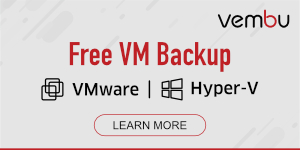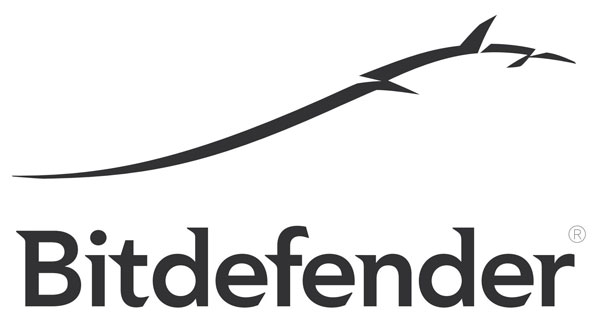
Brian Ducharme
Brian is an event reporter for VMBlog.com and an expert in virtualization/cloud techonlogies. In his 15+ years of experience in the virtualization/cloud field he has interviewed hundreds of companies, users and executives. Brian has been an active member of the NEVMUG (NEVTUG) since 2006 and attends both vmworld and Citrix Synergy every year. Brian works full time as a Senior Software Engineer for Liquidware Labs.
Brian also spent 5 years as the managing editor of Virtual Strategy Magazine, an online magazine focused on the virtualization industry and has been with vmblog since 2011. He has a background in Computer Graphics, Marketing, Programming, Web Design, Mobile App Development, Linux Administration and is an active member of the NHJS group.
Why attend IGEL DISRUPT 2020?
On January 27th, 2020, over 700 peers from the End-User community will gather in Nashville to attend North America’s largest Cloud Workspaces Forum.
Last year’s DISRUPT event laid out a vision for cloud workspaces – this year’s focus is all about education and helping you make your move!
Why should I attend?
Click on the link below and use PROMO CODE: VMBLOG to get a FREE ticket to attend (limited tickets available):
https://www.eventbrite.com/e/igel-disrupt-2020-tickets-70194610971?aff=VMBLOG
Morpheus at #KubeCon 2019 - Fastest Path to Multi-Cloud Kubernetes
VMblog visits Morpheus during #KubeCon 2019 in San Diego.
The company is helping organizations to solve governance, policies, security, automation and self-service around multi-cloud and multi-platform environments.
Morpheus has recently added Kubernetes and Ansible support to provide a deeper, system-agnostic automation and control product for an organization’s infrastructure.
DivvyCloud at KubeCon 2019 - Protect Cloud and Container Environments
VMblog visits the DivvyCloud booth during KubeCon 2019 in San Diego.
DivvyCloud software is designed to be agentless and standalone. You can apply it to any computing environment - public cloud or private software-defined infrastructure. The way DivvyCloud interacts with the host environment and Kubernetes is by way of their respective APIs. DivvyCloud continuously interacts with the APIs to gather information about the state of the hosts and the Kubernetes clusters of interest. These hosts can be Google Cloud, AWS, Azure, or a private data center that can expose infrastructure information via an API.
Once DivvyCloud is set up and targeted at the relevant host and Kubernetes clusters, it starts pulling down data about the environments - servers, security groups, load balancers, network-attached stores, S3 buckets, and any resource that is exposed via an API. This information is then unified into a single data model that represents the infrastructure and represents containment holistically.
Weaveworks at KubeCon 2019 - Build, Run and Manage Kubernetes Clusters and Applications
VMblog visits the Weaveworks booth during KubeCon 2019 in San Diego.
As the inventors of GitOps, Weaveworks demonstrated how GitOps helps a company manage and build applications on Kubernetes. With Git at the center of the operational model, application developers and cluster operators can easily spin up and manage production ready Kubernetes across different environments.
When a cluster configuration is stored in a Git repository, you can then use GitOps to recreate clusters in a predictable way. This brings advantages for building test environments and pipelines, and for reproducing clusters across teams with the same base configuration, or in improving your disaster recovery capability.
Kasten at KubeCon 2019 - Application Backup and Disaster Recovery
VMblog visits the Kasten booth during KubeCon 2019 in San Diego.
Kasten is tackling Day 2 data management challenges to help enterprises confidently run applications on Kubernetes. Kasten K10, a data management platform purpose-built for Kubernetes, provides enterprise operations teams an easy-to-use, scalable, and secure system for backup/restore, disaster recovery, and mobility with unparalleled operational simplicity.
Chef at KubeCon 2019 - Secure, Configure, Deploy Containers
VMblog visits the Chef booth during KubeCon 2019 in San Diego.
Corey Scobie, CTO at Chef, shares information about the NEW Chef and describes how they work with Kubernetes. Scobie also talks about Chef open sourcing 100% of its offerings under the Apache 2 license.
Watch the demo of Chef Habitat which enables modern application teams to build, deploy, and run any application in any environment – from traditional data-centers to containerised microservices. Chef Habitat provides built-in support for service discovery, configuration management, supervision, monitoring & health checks, rolling updates, deployment topologies, strict dependency management, and cross platform constituency.
Wallarm at KubeCon 2019 - Kubernetes-Native Security Solution
VMblog visits the Wallarm booth during KubeCon 2019 in San Diego.
Moving Kubernetes into production reliably and fast relies on security designed for the cloud. Wallarm Cloud-Native WAF delivers native security which scales with K8s and adds little if any latency.
The company showcased demos of kubernetes-native security with Wallarm delivering security automation in development (integrated in CI/CD) as well as run-time.
VMblog visits the Sauce Labs booth during KubeCon 2019 in San Diego. Sauce
Headless is all about facilitating shift-left motion. It enables development teams to get fast feedback on code and increase build efficiency by running atomic tests wherever they're needed, but especially early in the delivery pipeline. It works by leveraging headless Chrome and Firefox browsers on Linux in a Kubernetes, container-based environment. In other words, you can now put the theory behind shift-left testing into practice and test on every commit. Then you pair that with full cross-browser testing at the end of the development process, and you've got a truly holistic testing strategy.
Containous at KubeCon 2019 - Traefik and Maesh Products
VMblog visits the Containous booth during KubeCon 2019 in San Diego.
Containous is on a mission to make routing simpler so developers can focus on building instead of operating. They deliver open source routing software specifically built for a world of containers and microservices. From Traefik the open source cloud native edge proxy and TraefikEE its commercial offering, to Maesh open source SMI-compliant Service Mesh for Kubernetes, their products are fitting in the cloud native landscape with a focus on openness, simplicity, scalability, reliability and high availability.
Mirantis at KubeCon 2019 - Kubernetes-as-a-Service (KaaS)
VMblog visits the Mirantis booth during KubeCon 2019 in San Diego.
Mirantis provides a continuously delivered multi-cloud container management platform based on Kubernetes and a full stack of ecosystem technologies.
Kubernetes is creating a new way for enterprises to build and run software as they move to cloud. However, lifecycle management for a fleet of Kubernetes clusters with full stack support is an unsolved challenge. With the introduction of Mirantis Kubernetes-as-a-Service (KaaS), enterprises get zero touch, self-service Kubernetes clusters with a consistent developer experience across public clouds and on-prem infrastructure.





















